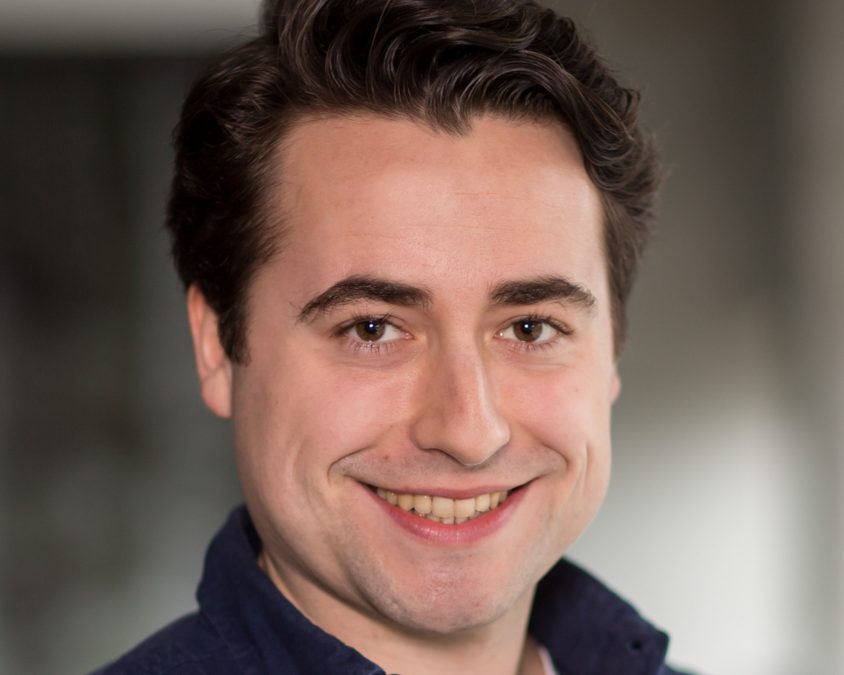Alain Starke has attended Eindhoven University of Technology (TU/e) where he studied Technical Innovation Sciences. He also spent a semester in Lausanne at the Swiss Federal Institute of Technology (EPFL), where he studied Innovation Management. Initially, his undergraduate courses focused on sustainable transition and technologies, but later he became more interested in research that considered the individual rather than society as a whole.
After his successful application for funding to the Dutch Research Council, he earned his PhD in Energy Recommender Systems, where he investigated how personalized algorithms can help to give people energy-saving advice and how they can behave more sustainably at home.
Can you give us a short introduction about yourself and your background in recommender systems?
The significant difference between me and a standard computer scientist is that I use more psychology in my research. After obtaining my PhD, I first worked together with Christoph Trattner at the University of Bergen between 2019-2020, which got cut short because of COVID-19. We worked on psychologically-aware food recommender systems. We understood what Netflix was doing is interesting to give personalized advice, but that to help people to change their behaviour, you need different types of interfaces and algorithms.
The analogy between media and food recommender systems is that you could also refer to diets in media, but it is more metaphorical in the sense that you do not eat it. The type of content that you see in the news domain depends on the algorithm of the recommender system and your personal preferences. When people are talking about filter bubbles or getting one-sided information, I suppose that the ‘traditional’ algorithms or the types of interfaces are not sufficient to support them to gain a healthy media diet. Many of them have originally been designed to optimize engagement, not to support specific goals, such as media diversity of health.
What are your plans regarding the food recommender system research here at MediaFutures?
I will be focusing on bringing together insights from the social sciences and the more technical (computer science) domains. One thing we want to investigate is where personalized food advice meets interface design and the use of nudges, with the aim to not restrict the freedom of choice of people, but to motivate them to pick healthier and more sustainable options. I am very interested in how whether these technologies can support changes over time and whether this is possible for both for food and for news, because currently recommender systems are used and optimized for single sessions.
Recently, I started to investigate how we can use the interface design of Netflix, Amazon Prime and Disney+ for the food domain, by showing a so-called ‘multi-list recommender system’. Our research will not feature the specific technology and the aesthetics that Netflix has, but we want to see if their approach has merits for the food and news domain. Most people in the field take [Netflix] is as the golden standard, but there has not been much research into the effects of how people evaluate it, nor its long-term effects. So, for food whether this could help people to make healthier choices over time. When it comes to ethical challenges, the question could be that is it up to the designer to decide what is the more important thing: it is for the greater good of the other people (e.g., sustainability, public health) or to show what the users like best. That is a challenge too, to each domain: what a developer wants might not be the same as what the user wants; which also applies to news media.
Do you think recommender systems are the future or just a step to help our society get back on track or the opposite?
Personalized content and recommender systems as we know it will be around for a few decades because it is one of the big innovations. They are a requirement to use the internet, because if we do not filter the available information for people, it will be very unusable. For decades, newspaper editors and TV broadcasters have determined for us what the most valuable information is. Now that we have the internet, there should always be a way for us to navigate all the information available – and recommender systems are needed for that. Whether that will bring us failure or fortune is a tricky question. I think that the efforts at MediaFutures will be especially important to make sure that what we value in our offline life is reflected in our online presence. Most of the personalization online is optimized to keep us engaged. More of what we appreciate in real life should also be reflected online and I have the hope that we are doing at MediaFutures can contribute to that and will leave us in a better position to at least make our own lives a little better.

